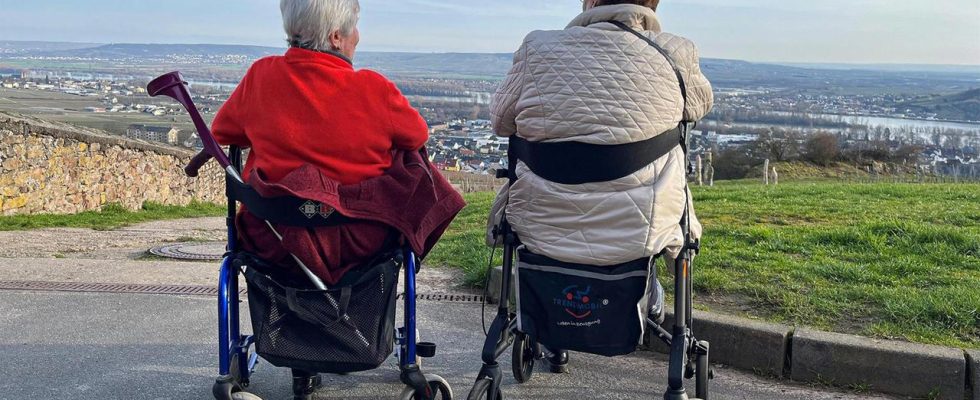The retirement income of women and men continues to be different. The so-called gender pension gap was more than a quarter in 2023. This means that women are more affected by poverty as they get older.
There is a big gap between the average income in old age between women and men. What is known as the gender pay gap, which refers to unequal levels of wages and income during working life, is expressed in the gender pension gap in different levels of pensions and pensions.
According to calculations by the Federal Statistical Office, women aged 65 and over received an average gross retirement income of around 18,700 euros per year last year. For men the value was around 25,600 euros. Retirement income includes old-age and survivors’ pensions and pensions as well as pensions from individual private provision.
Without Survivor pensions the gap is even bigger
As the authority determined, the gender gap in retirement income was 27.1 percent. The retirement income of women was on average more than a quarter lower than that of men. If survivors’ pensions are excluded from this analysis, the gender gap is as high as 39.4 percent; women are significantly more likely than men to receive a survivor’s pension from their partner.
There are several reasons for the significant gap in retirement income: Women, on average, acquire lower pension entitlements over the course of their working lives because they sometimes work in lower-paid sectors than men. They also work part-time more often, take more frequent and longer breaks for care work and are less likely to work in management positions.
Poverty in old age is primarily female
Due to lower income in old age, women are at greater risk of poverty: 20.8 percent of women aged 65 and over are considered to be at risk of poverty, while for men in the same age group the rate is 15.9 percent. According to an EU definition, a person is considered to be at risk of poverty if they have less than 60 percent of the median income of the entire population. In 2023, this value for a person living alone in Germany was 15,715 euros net per year (1,310 euros net per month).
The gender pension gap is significantly higher in western Germany than in eastern Germany. While the gender pension gap in the former federal territory (excluding Berlin) is 31.5 percent, it is 6.1 percent in the new federal states (including Berlin). The gap between the average gross retirement income of men and women aged 65 and over is therefore smaller in the East than in the West. On average, men in the East receive lower retirement income than men in the West (East: 20,404 euros, West: 26,541 euros). On the other hand, women in the East receive higher retirement income on average than women in the West (East: 16,605, West: 14,916).
Pension increase planned for July 1st
The Federal Cabinet is deciding today on the pension increase planned for July 1st. An increase in the statutory pension by 4.57 percent is planned. For the first time, this will apply uniformly throughout Germany; there will no longer be any differences between East and West Germany. The increase in retirement benefits results from the wage development in the previous year. Unlike last year, pensions are once again rising faster than inflation. Inflation fell to 2.2 percent in March.
Economists have welcomed the planned pension increase as an important support for the purchasing power of pensioners and for the economy. “Even with this increase, the purchasing power of pensions at the end of 2024 is still lower than in 2019, i.e. before the pandemic and energy price shock,” said the head of the trade union-affiliated Institute for Macroeconomics and Economic Research (IMK), Sebastian Dullien “Rhineland Post” (Wednesday edition).

